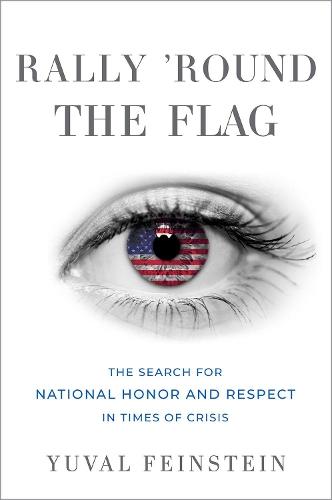Overview
An extensive investigation of the rally-round-the-flag phenomenon of public opinion in the United States during wars and security crises. The ""rally-round-the-flag"" phenomenon in the United States is characterized by a sudden and sharp increase in the public approval rating of the sitting US president in response to a war or security crisis. While relatively uncommon, these moments can have a serious impact on policymaking as politicians might escalate a conflict abroad or restrict civil liberties at home. What, then, are the conditions and processes through which rallies have emerged? In Rally 'round the Flag, Yuval Feinstein revisits the phenomenon to answer this question. He examines both the conditions under which rally periods have emerged in the US and the processes that have generated these rallies to introduce a novel rally theory. Drawing on an original data set of conflicts covering 1950 to 2020 and survey data, Feinstein shows that the rally-round-the-flag effect is not an automatic public reaction to international conflicts. Rather, it is a rare event that emerges only under circumstances that lead most Americans to believe it is necessary to take military action to maintain or restore collective honor and gain the respect of other nations. He further attributes public opinion shifts during rally periods to nationalist emotions that people experience when they believe that the president's actions effectively protect the nation's honor and international prestige. Identifying the unique sets of conditions for the emergence of rallies, Rally 'round the Flag offers the most extensive investigation of this public opinion phenomenon and proposes future directions to research the topic for both the United States and other countries.
Full Product Details
Author: Yuval Feinstein (Associate Professor and Chair of Sociology, Associate Professor and Chair of Sociology, University of Haifa)
Publisher: Oxford University Press Inc
Imprint: Oxford University Press Inc
Dimensions:
Width: 23.90cm
, Height: 2.30cm
, Length: 16.20cm
Weight: 0.517kg
ISBN: 9780197629710
ISBN 10: 0197629717
Pages: 280
Publication Date: 23 January 2023
Audience:
Professional and scholarly
,
Professional & Vocational
Format: Hardback
Publisher's Status: Active
Availability: To order

Stock availability from the supplier is unknown. We will order it for you and ship this item to you once it is received by us.
Reviews
Scholars, pundits, and citizens have long posited that presidents go to war to generate public support. Yet, scholarship has lagged behind these claims until now. This book provides the most comprehensive and insightful investigation of the rally around the flay effect. It specifics when it occurs and when it does not. It is required reading for all who care about American democracy and its place in the world. -- James N. Druckman, Northwestern University Packed with data, crucial cases, and an impressive, interdisciplinary range of cases and reference, Rally-Round-The-Flag presents a comprehensive, focused look at how national unity emerges from threats and crises. This is an essential work for understanding contemporary public opinion and political attachments. -- Andrew J. Perrin, SNF Agora Institute Professor of Sociology, Johns Hopkins University Feinstein's sweeping account of surges in presidential support following some-but not all-national crises seamlessly synthesizes structural, situational, and individual factors, placing the restoration of collective honor at the center of the explanation. This riveting study is an exemplar of multi-method comparative-historical inquiry and essential reading for anyone interested in US political culture and the transformative origins of the post-9/11 era. -- Bart Bonikowski, Associate Professor of Sociology and Politics, New York University
Author Information
Yuval Feinstein is Associate Professor and Chair of Sociology at the University of Haifa and a Visiting Associate Professor of Sociology at Harvard University. His research examines the ways ethnic and national identities affect people's attitudes about peace and war, ethnic minorities and other policy issues in settled and during crisis.




